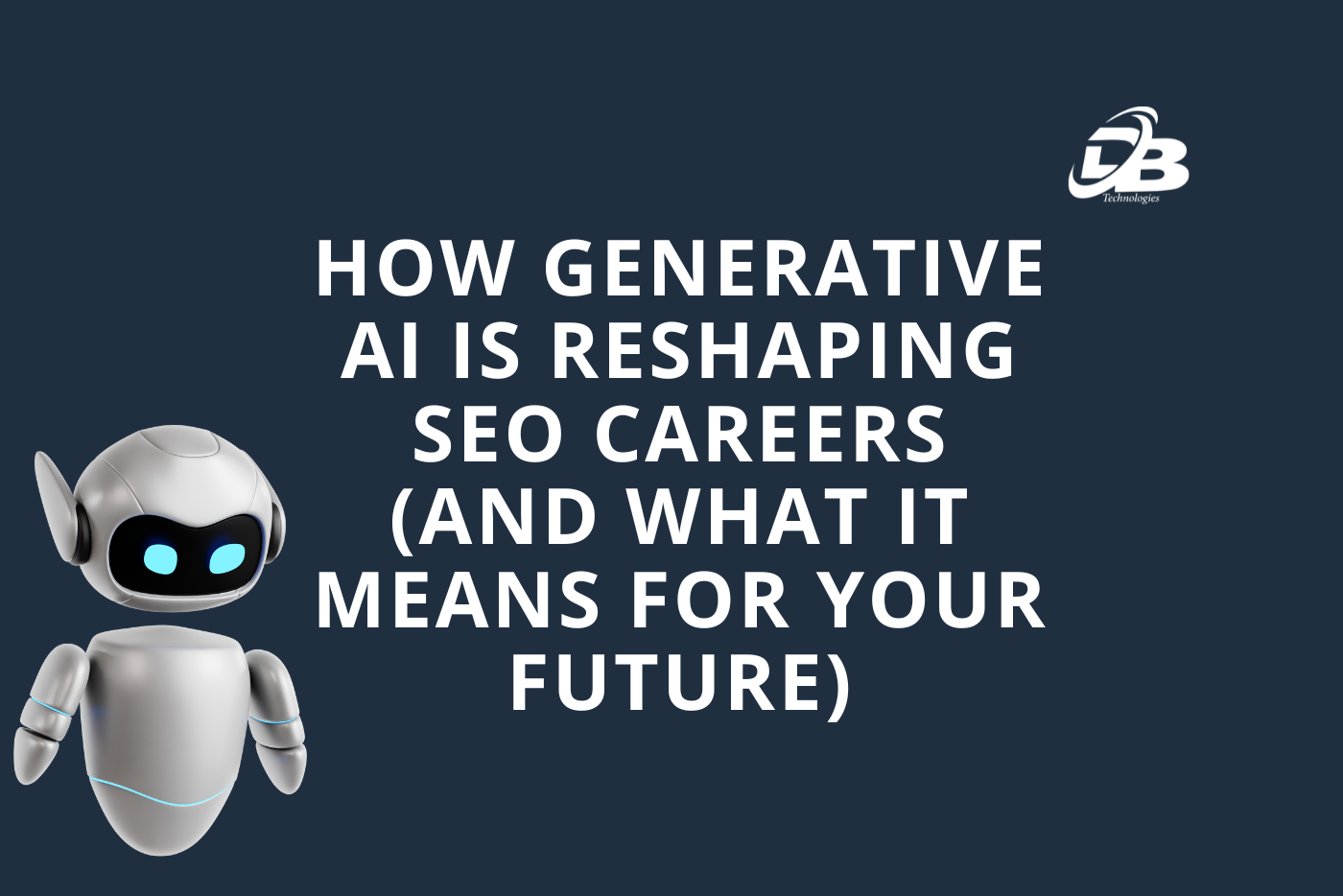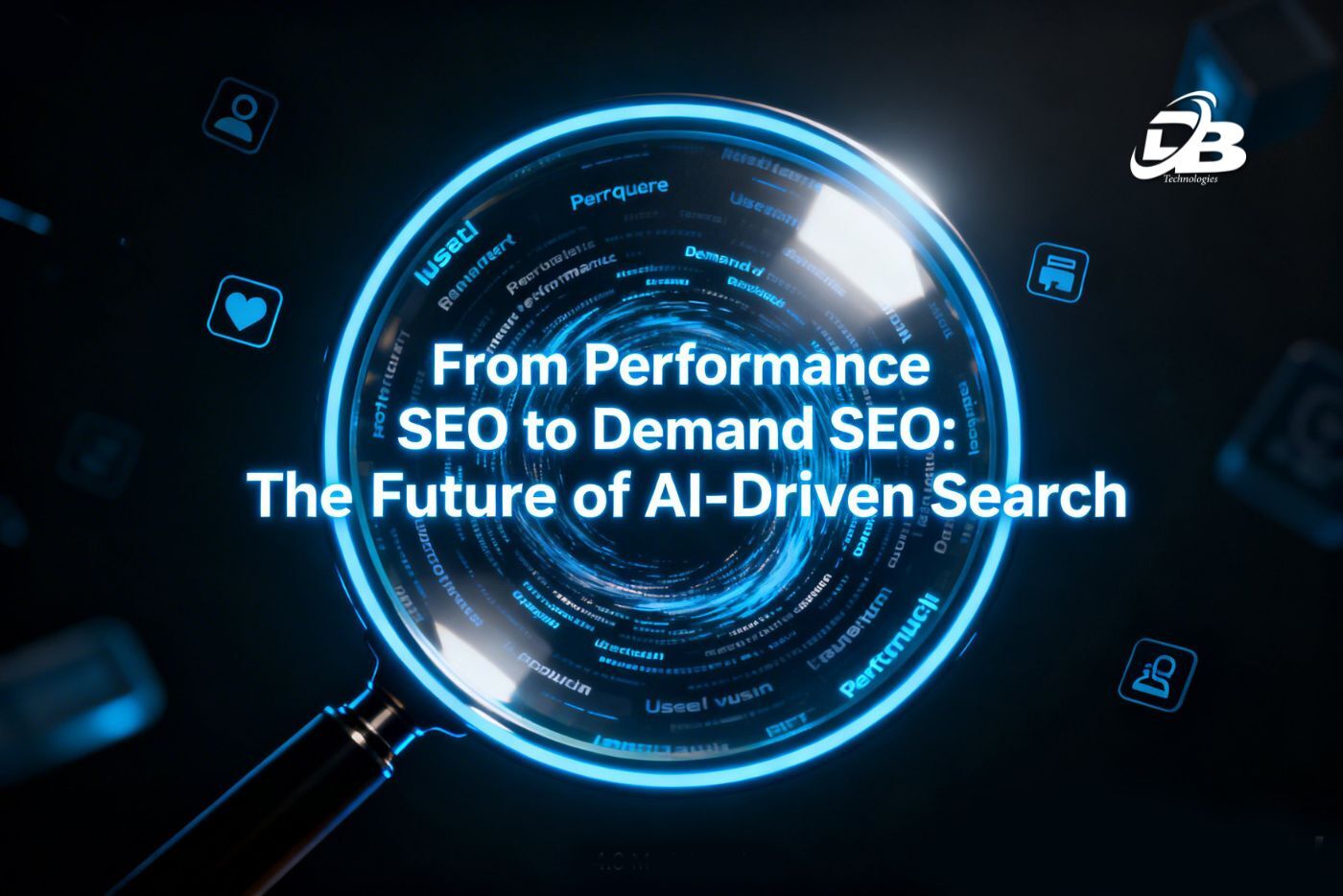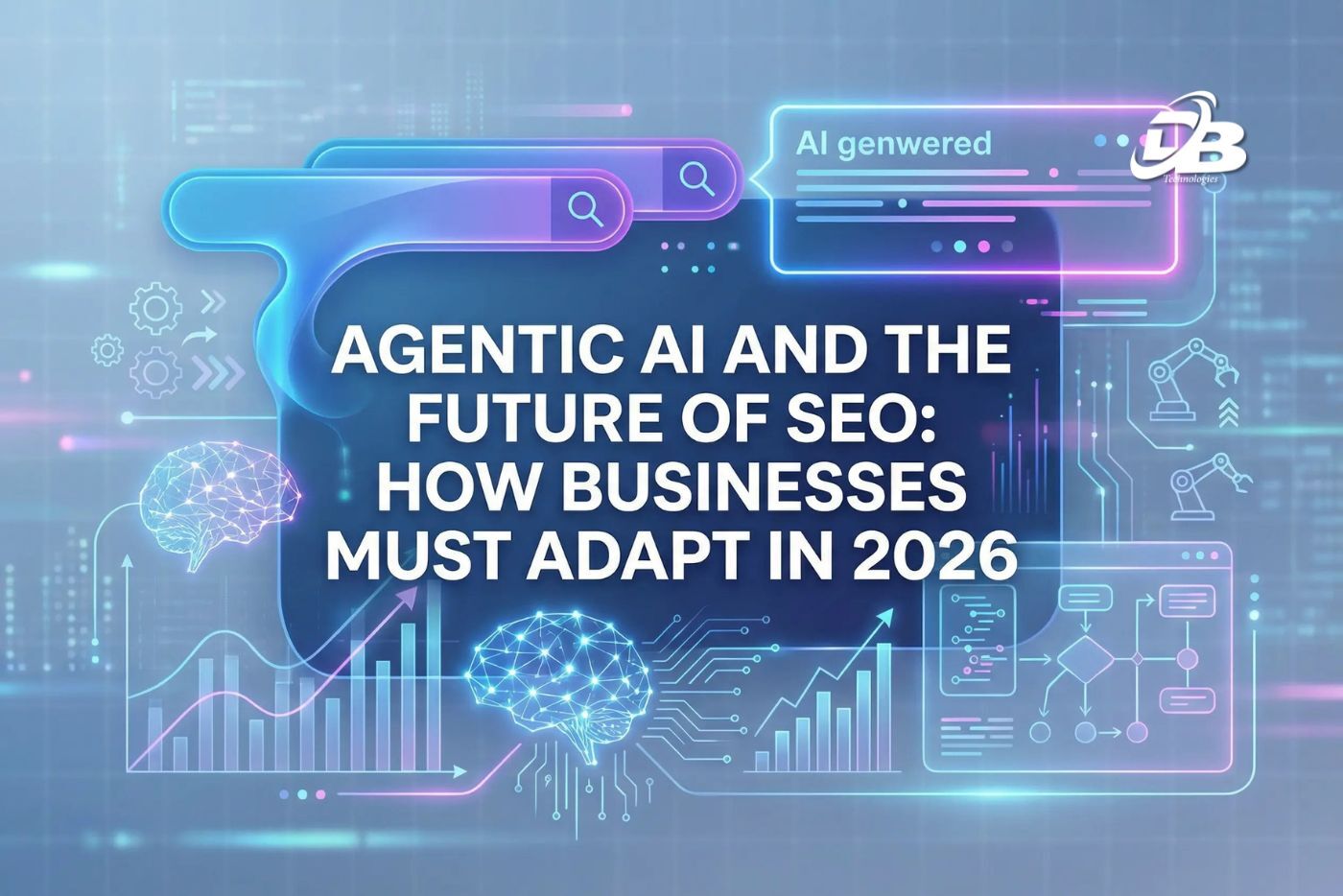
If you are in SEO or want to enter the field, you most probably have heard many sources that AI and SEO Jobs have a looming future, “SEO is dead”, “AI will replace everyone” We’ve heard these statements many times, haven’t we?
Just like when people claimed that social media would kill email. However, here’s the real deal, SEO is not fading, it is just changing into something that is more strategic, more human, and frankly, more exciting. And generative AI? It is the powerful agent that is propelling this change.
Our strategy is to examine data, engage with leading experts and also experience these tools firsthand. It couldn’t be more obvious, the character of SEO tasks is quickly altering, and the positions that will succeed in 2025 and later will hardly resemble those from a few years ago.
In this well researched blog , we will explore what is the truth, what’s the exaggeration and where the real possibilities are for the smart ones.
Why This Isn’t Just Another “SEO is Dead” Moment
Remember when Google’s Panda update hit? Or when mobile first indexing rolled out? Each time, the panic was loud but SEO adapted. Generative AI feels different because it’s not just changing how we optimize; it’s changing where people even look for answers.
Think about it. Nearly two thirds of consumers believe AI in SEO automation will replace traditional search within five years. Tools like ChatGPT now pull in 5 billion visits monthly, rivaling established players like Bing. And get this, 82% of users find AI powered answers more helpful than traditional search results. That’s not a tweak, rather it’s a tectonic shift in user behavior.
But here’s what the fear mongers miss, people aren’t abandoning search,they’re fragmenting it. They might start with a Google query, ask ChatGPT for a deeper explanation, then check Reddit for real user experiences. Your audience is still searching; they’re just doing it across more places. And that means more touchpoints to optimize, not fewer.
The Great Reshuffle- What AI Handles Now (And What It Can’t)
Okay, let’s get practical. Generative AI is eating certain AI and SEO jobs for breakfast. Tools like SurferSEO, Frase, and MarketMuse now handle:
1) Keyword clustering & intent mapping: AI identifies semantic relationships between terms faster than any human
2) Technical audits: Crawling 10,000 pages? AI spots speed issues, broken links, or indexing gaps in minutes
3) Content drafting: Not just meta descriptions, full blog outlines, FAQs, even localization
But here’s where things get interesting. AI struggles badly with the “why” behind SEO. It can’t:
1) Build a cohesive 6 month strategy accounting for brand goals, budget, and competitive threats.
2) Interpret nuanced algorithm updates like Google’s recent SGE tweaks requiring fresh citation formats.
3) Cultivate backlink relationships or negotiate a guest post with a wary editor.
Inject true expertise like a doctor explaining complex medical procedures or a lawyer interpreting regulatory changes.
As one study bluntly put it, “AI Overviews have driven high levels of skepticism, yet only 22% of marketers track their brand visibility in AI responses”. That gap? That’s your opportunity. Tasks AI can handle in SEO include technical audits, keyword clustering, and even drafting basic content frameworks. But without human refinement, AI outputs often lack nuance and brand alignment.
To further enrich your knowledge base on this topic,, you might also enjoy our piece, “The Future SEO Skills Gap, How to Stay Relevant When Google Changes Everything”
GEO and AEO: The New SEO Frontier You Can’t Ignore
If you haven’t heard of Generative Engine Optimization (GEO) or Answer Engine Optimization (AEO), bookmark this section. This is where SEO is racing next.
GEO isn’t about ranking #1, it’s about becoming ChatGPT’s favorite source. Think of it like this: When someone asks Perplexity, “What’s the best CRM for small e-commerce?”, you want your data cited in that answer. GEO tactics include:
1) Structuring content for AI comprehension: Clear headers, concise intros, and FAQ schemas help AI “grab” your insights
2) Building entity authority: Mentions in trusted publications (think Forbes or niche journals) signal credibility to LLMs
3) Prioritizing freshness: AI favors recent stats and studies, outdated content gets ignored
AEO, meanwhile, focuses on snagging those zero click answers in Google’s SGE or Bing’s AI Copilot. Tactics here mirror featured snippet hunting but demand tighter phrasing:
1) Direct Q&A formats: Question headers (“How do I fix crawl errors?”) and 40-word answers.
2) Voice search optimization: Conversational tone, simple sentences, and localizing additions (“near me,” “open now”).
3) Structured data overkill: Product schema, reviews, FAQs, layer everything
Early data shows GEO optimized content enjoys up to 40% higher visibility in AI responses with smaller sites seeing gains over 115%. Ignore this, and you risk vanishing from the next generation of search.
The Skills That Will Separate Winners From “Where’d Everyone Go?”
So what does this mean for your career? Based on hiring trends and tool adoption, here’s what’ll matter most:
1. AI Whispering (AKA Prompt Engineering + Tool Mastery)
The future of SEO roles will favor hybrid specialists who blend technical skills with AI prompt engineering. Forget coding, prompt crafting is SEO’s new superpower. Knowing how to command tools like Claude or Gemini to:
1) “Analyze the top 10 SERPs for ‘sustainable yoga mats’,identify content gaps and emotional triggers missed by competitors”
2) “Draft 5 meta variants balancing CTR appeal and FAQ schema inclusion”
…is pure gold. But it’s not just prompts. You’ll need to audit AI outputs ruthlessly. One case study saw a 65% featured snippet jump after human editors fixed AI generated inaccuracies in SaaS content
2. Strategic Storytelling With Data
AI crunches numbers; humans tell stories with them. The pros in 2025 will:
1) Translate GA4 anomaly detection into narratives like, “Our product page drop aligns with SGE rolling out, let’s reposition how we answer sizing questions.”
2) Pair SEO forecasts with business impact: “Targeting ‘GEO for B2B SaaS’ could capture 200+ monthly leads by Q4, based on Similarweb’s traffic data for keywords.”
3. Technical SEO: Deeper, Not Obsolete
Yes, AI finds crawl errors. But interpreting why they matter? Human territory. Expect demand for pros who grasp:
1) JavaScript rendering trade offs: When to use SSR vs. CSR without torching Core Web Vitals.
2) Indexation strategy: Which pages to index in an SGE world where “depth over breadth” wins.
3) API driven GEO: Feeding product data dynamically to LLMs via structured endpoints .
4. E E A T Amplification
The role of SEO specialists in the AI era has shifted from executors to strategists who guide AI tools. Their value now lies in interpreting data, optimizing for E-E-A-T, and making judgment calls AI can’t replicate. Google’s doubled down on Experience, Expertise, Authoritativeness, Trustworthiness, and AI loves authoritative sources. Skills here include:
1) Building author provenance: Not just bios,linking writers to LinkedIn, publications, and conference talks.
2) First party research: Original surveys or data studies that become go to citations for AI (and journalists)
3) Bias auditing: Spotting where AI content drifts off brand or misrepresents facts.
5. Adaptive Learning
Algorithms change weekly. The pros who thrive attend workshops (like SMX Advanced’s GEO labs), experiment with beta tools (Google’s SGE tester), and share findings openly. One LinkedIn study noted specialists who dedicate 5+ hours weekly to learning saw 30% higher project ROI.
The Bottom Line: Your Job Won’t Vanish,It’ll Evolve
Look, I get the anxiety. When ChatGPT writes a decent meta description in 2 seconds, it’s easy to feel obsolete. But the data’s clear, 74% of marketers now use AI in their workflows, yet only 4% rely on it for over 75% of their work . Why? Because strategy can’t be automated. Relationships can’t be automated. True expertise can’t be automated.
The AI and SEO jobs of tomorrow will look less like “keyword stuffers” and more like AI enhanced strategists. You’ll spend less time grinding reports and more time:
1) Coaching AI tools using proprietary data (like your CRM insights or user surveys).
2) Designing GEO experiments to boost brand visibility in Perplexity or Claude.
3) Collaborating with PR to earn citations that sway LLMs.
As one analyst put it, “The only way to keep AI from taking your job is to use AI to do your job better”
So, where do you start?
1) Pick one GEO tactic: Maybe schema cleanup or author bio enrichment. Measure traffic from ChatGPT/Perplexity in GA4.
2) Audit your toolkit: Ditch outdated plugins. Try LowFruits for keyword gaps or Originality.ai for fact checking.
3) Upskill strategically: Take a prompt engineering course. Attend an AI SEO job summit (like those by Search Engine Land).
Generative AI didn’t kill SEO, it just made it more dynamic. And honestly? That’s the most exciting thing to happen to our field in a decade.












